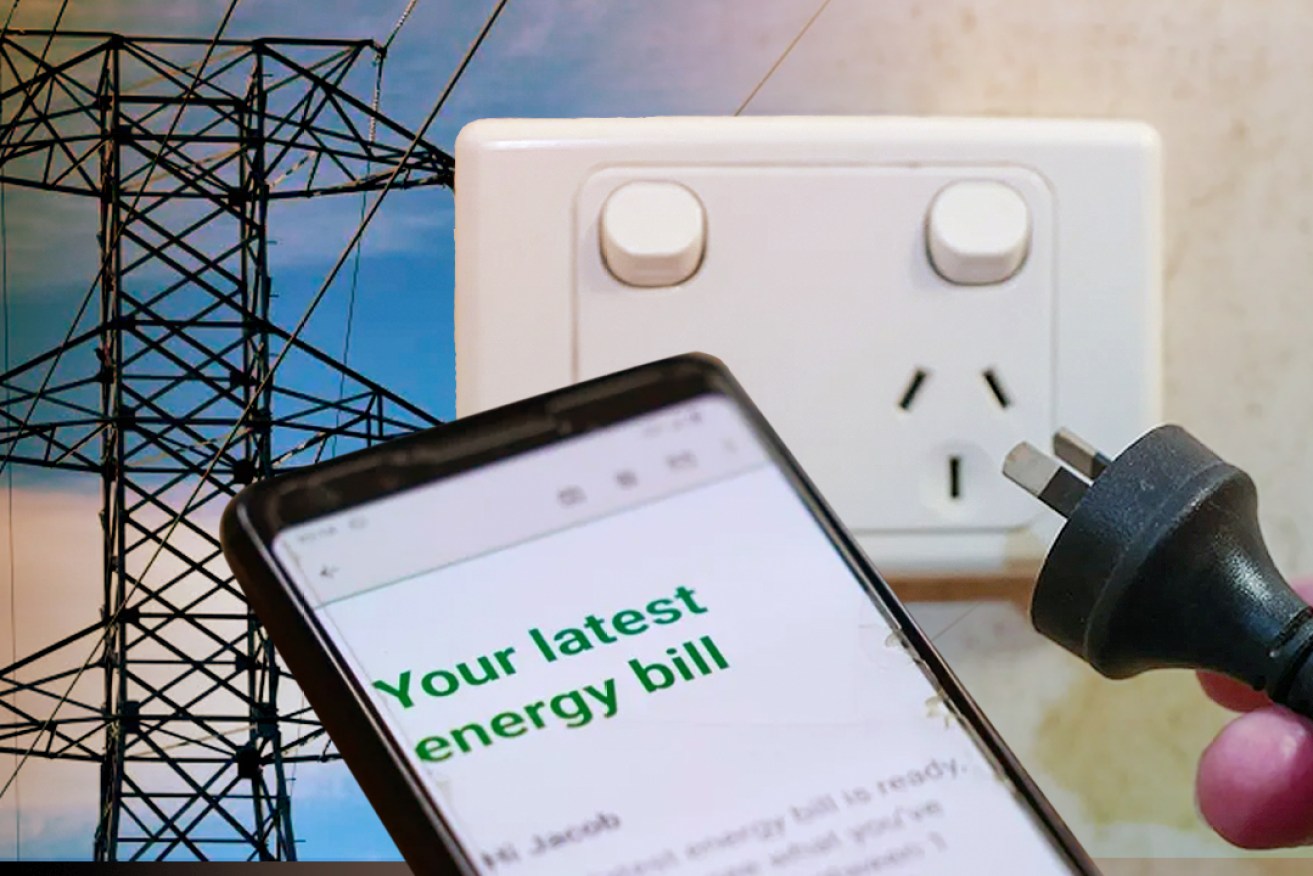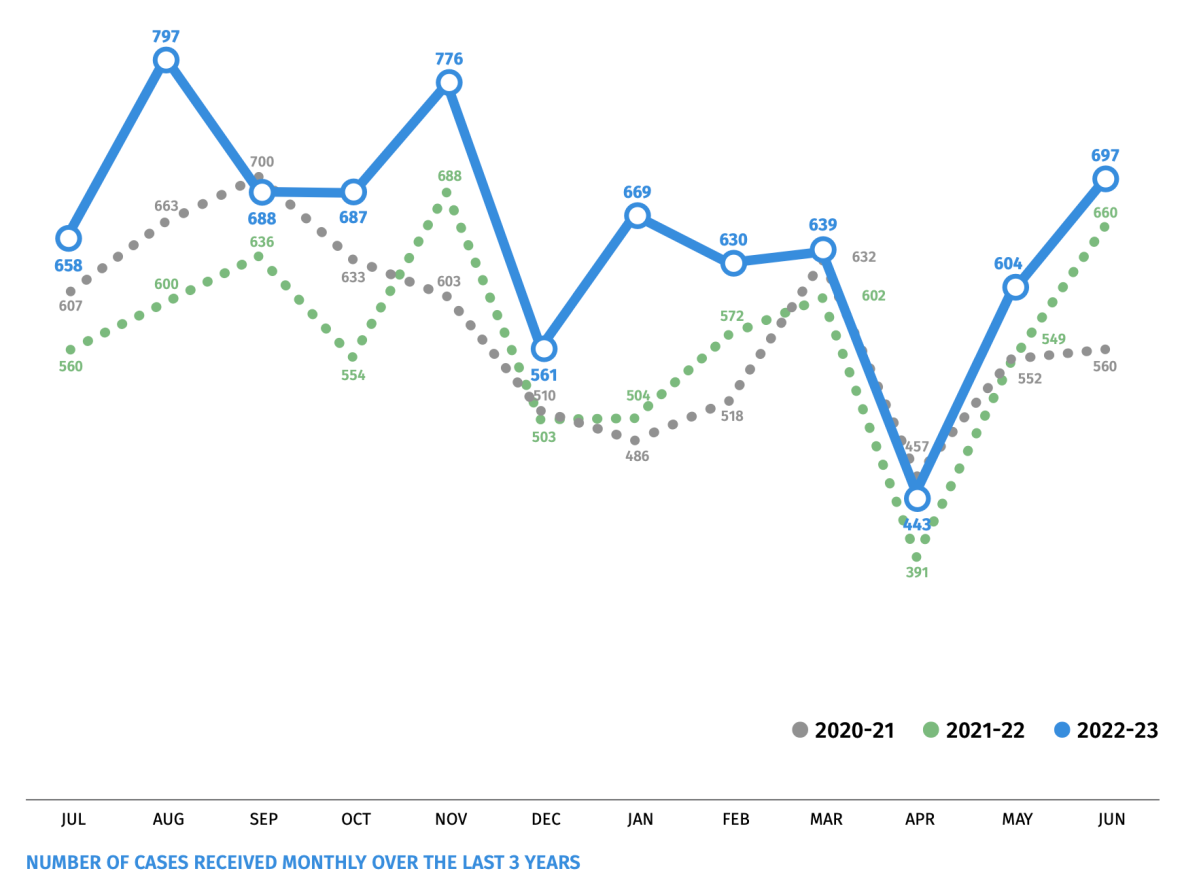Energy bill complaints rise as SA households grapple with cost of living
Complaints about energy and water billing to South Australia’s independent ombudsman increased 26 per cent last financial year, with the result attributed to rising electricity prices and broader cost-of-living pressures.


Image: Tom Aldahn/InDaily
The South Australian Energy and Water Ombudsman (EWOSA) received 3939 complaints about electricity, gas and water billing in the 2022/23 financial year, according to the Ombudsman’s annual report published today.
It is the highest number of billing complaints EWOSA has received since 2014/15 and a 26 per cent increase on 2021/22.
Billing complaints include people who are disputing the accuracy of their bill, concerned about its size or looking for assistance in paying.
The complaints increase comes after a tumultuous financial year for the Australian energy market, with average electricity retail market offer prices increasing 8.3 per cent in South Australia last financial year, according to data from the Essential Services Commission of SA.
The price rises prompted the federal and state governments to intervene in May with a joint $254 million energy relief package for around 420,000 South Australian households.
Last financial year’s price rise amounted to a $169 annual increase for a customer on a market contract.
Sandy Canale, the Energy and Water Ombudsman, attributed the rise in complaints to a return to “business as usual” after COVID restrictions, large bill increases, and changes in billing practices.
“It’s more about having come out of that COVID period where things were relatively stable and quiet and entering back into what I would call almost a business-as-usual environment where businesses are back pretty well at full capacity, people have returned back to their workplaces,” he said.
“So they’re starting to see bills which are higher than perhaps they had received previously.
“The secondary aspect to that… is just the quantum of the increase once they have received their first over-monthly bill or quarterly bill.”
Canale said many of the government energy bill offsets were not due to come into force until September and October this year, which is after the complaint period measured in the annual report.
He said broader cost of living issues in the economy had put more pressure on customers with energy affordability.
“That traditional space has changed as well for those customers who have affordability issues – it’s now broader,” he said.
“And I think that can only be attributed to the broader pressures that they’re also encountering, whether it be mortgage related or whether it just be cost of living related.
“There’s a whole heap of financial pressures on customers and then to have this overlayed, and this is a fairly visual increase because you’re going to get billed either monthly or quarterly and it’s going to be evident as soon as you get that bill.”
The total number of complaints (not just billing-related) increased 16 per cent to 6162 complaints last financial year, according to the EWOSA report.
Issues with the provision of services, credit/payment difficulties and supply quality were the three most complained about issues behind billing.
Although higher than the previous two years, the complaint volume is still lower than pre-COVID levels.
EWOSA took on its highest number of cases in August and November last year.

Caseload volume for EWOSA last financial year compared to 2021/22 and 2020/21.
Despite the increase in complaints, Canale said EWOSA hasn’t observed an increase in supply disconnections.
Asked what the implications would be of another energy price rise in 2023/24, Canale said: “I guess the major concern there is that we would find more and more customers falling into arrears and accumulating debt.
“We don’t want people coming off supply and then staying off supply because that really is a very poor outcome,” he said.
“And I think we can only hope that the forward space for energy is that we start to see some softening of prices in the forward years, where perhaps they start to moderate to some degree.
“But we still don’t want people having accumulated debts which is going to take them quite some time to pay off.”
Canale urged customers to shop around for a better offer and visit the federal government’s Energy Made Easy website to compare plans if they’re concerned about their bill.




